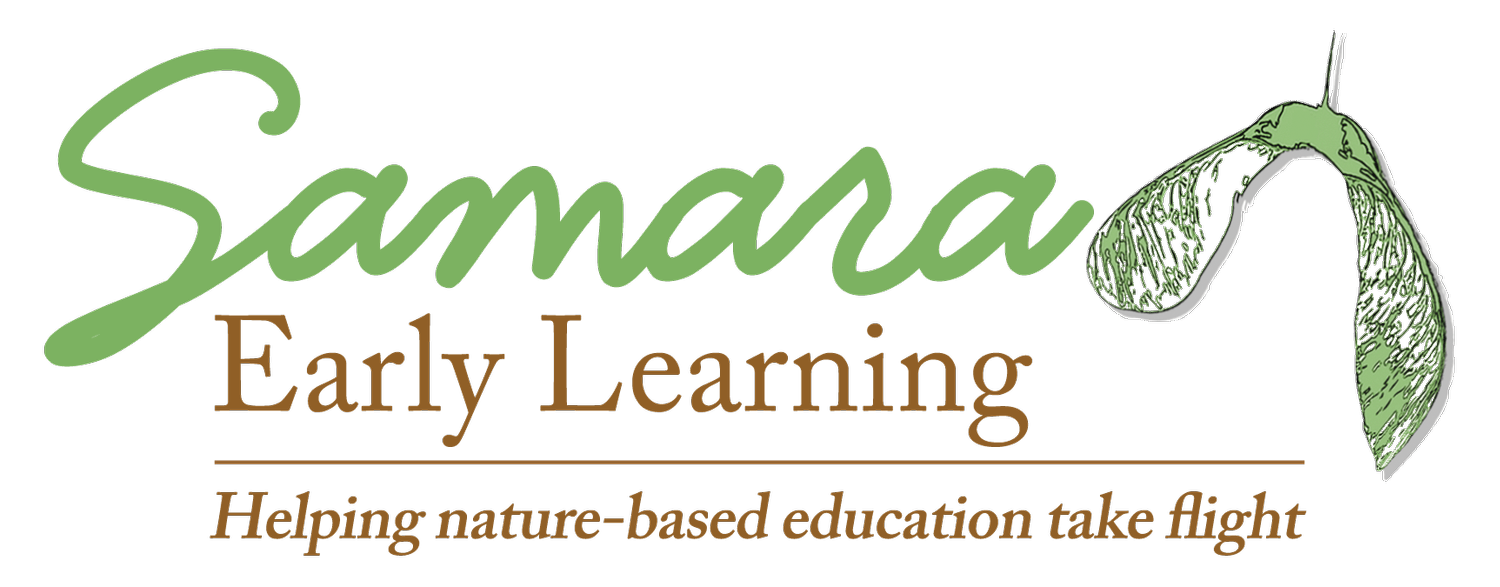Freebies!
Free resources related to nature-based early childhood education

We’re in it together—Team teaching in early childhood
Every single adult in any classroom matters. They impact the children, the other adults, and interactions with families. Everyone matters.

It's science too!
Natural history is important science. Natural history is the science children are engaging with every day in nature-based programs!

Experiences rather than activties
An "activity” is a very teacher-led, scripted interaction with a clear structure and intended outcome. Whereas an "experience" is an event or occurrence which leaves an impression on someone.

Child-led play
One goal of nature-based early childhood education is to support children’s holistic development. The way we do this is by emphasizing two key elements of early childhood education: 1) Play-based and 2) Child-led.

We’re not separate
The core teaching of Nature-based early childhood education (NbECE) is that the learning isn’t just IN nature or ABOUT nature, but is a relationship between nature and the child. That’s why we use the phrase “learning WITH nature.”

Planning for Earth Day
Even on special days like Earth Day we want to keep things as play-based and child-led as possible.

Enjoying the easy weather
As the weather gets “easier,” I encourage you to spend even more of your day outdoors. Establishing a clear routine and a rich learning space will make the experience much, much better for everyone!

Whining or communicating a need?
There are times where young children may sound like they’re whining, but they’re really communicating a need. It’s our job as nature-based early childhood teachers to figure out what it is they need.

Trail Map for Leading Change
Leading change in nature-based early childhood education cs difficult. And slow. This means that whether you’re an administrative leader or a classroom leader, it can be a daunting, frustrating task to inspire others toward the nature-based approach.

Inspiring Change Toward Nature-based Teaching
If we want others to move toward nature-based early chitdhood teaching our only effective option is to inspire.

Evaluating Natureness: Community & family engagement
Family engagement and community partnerships are areas of nature-based education that sometimes get overlooked, but are important components for a thriving program. Let’s look at each…

Evaluating Natureness: Quality comes from the people
Remember, nature-based pedagogy is a collection of practices. All of these practices are ultimately influenced or implemented by administrators and teachers.

Evaluating Natureness: Collection of practices
Can we call ourselves nature-based?
I often hear this from early childhood educators. My response? Nature-based education is a collection of practices that prioritize children’s experiences learning with nature.

So Much More Than A Cute Kid Story
At first glance this may seem like just a cute kid story. We have lots of cute kid stories in our work, don’t we? But like with almost every cute story…there’s real depth to notice.

Abundance of Distractions
Distractions only increase as we move through the year. There will slowly be more bird calls, more insects, more buds popping and forming into leaves, animals having babies, and so on. That means now, when there are fewer distractions, is a great time to start a phenology journal!

Surviving Re-entry
After a break, it’s hard for us to get back into the normal routine. It’s no different for young children.

Wonder walks & sit spots
Mindfulness. It’s a term that seems to be growing in popularity, but what is it? And does it have a place in nature-based early childhood education? Two strategies that bring mindfulness into our nature-based classrooms are Wonder Walks and Sit Spots.

Your place matters
Despite so much being universal, place is vital to our work in nature-based early childhood education. It’s universal that our programs connect to nature, but the plants, animals, and culture of our place are unique.

Don’t let regulations spook you
Whether you’re contemplating starting a school or you have a school and are considering integrating more nature-based approaches, at some point you’ve probably had thoughts about regulations.

Never wonder where your sense of wonder went
Maybe nature-based education ensures that we as teachers will hold onto our own sense of wonder. Our sense of wonder in nature. Our sense of wonder in children.
